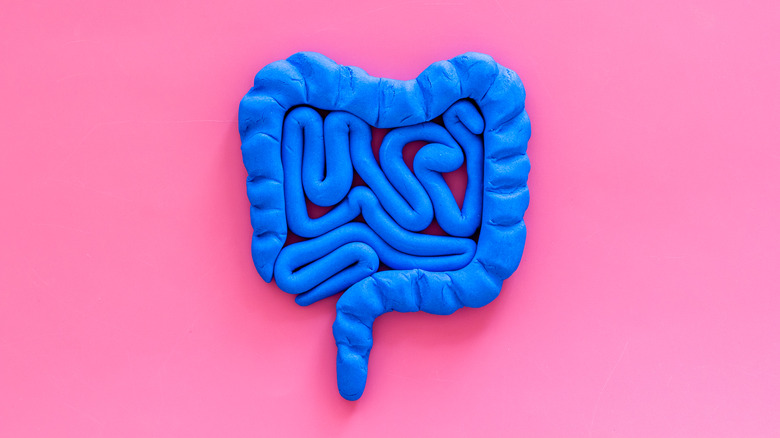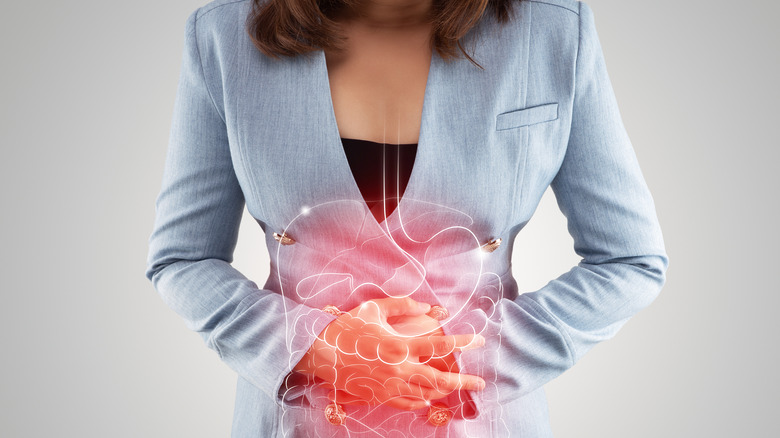How Long It Really Takes To Digest Food
Digestion is the process of breaking down food into nutrients, which your body can use for energy. This process begins in the mouth and ends in the large intestine (via Healthline).
After you swallow food, it travels down your esophagus, through the esophageal sphincter, and into your stomach where it is broken down by a combination of enzymes and stomach acids. What remains is a mixture of partially digested food and gastric juices, known as chyme, that passes through your small and large intestines.
In the small intestine, the chyme is further broken down by pancreatic enzymes and bile from the liver. From there, water and digested nutrients are absorbed by the walls of the small intestine and dispersed out into your bloodstream. Any undigested food eventually becomes waste as it proceeds through to the large intestine. While the amount of time it takes to digest food varies from person to person, the entire process can last anywhere between 24 to 72 hours.
However, there are a number of health conditions that can disrupt the digestive system and have an effect on the gastrointestinal tract. While they don't necessarily affect the length or speed of digestion, they can cause unpleasant gastrointestinal symptoms (via Greatist).
Health conditions that can impact digestion
One condition that can negatively affect digestion is lactose intolerance. Lactose intolerance is the inability to digest lactose — the sugar that's the main carbohydrate in milk and dairy products (via Greatist). It's caused by a deficiency of the lactase enzyme, which is responsible for breaking down lactose. People who are lactose intolerant often experience digestive issues after eating dairy. Common symptoms include gas, bloating, stomach cramps, nausea, and diarrhea.
Irritable bowel syndrome (IBS) can also disrupt the digestive process. IBS is a common digestive disorder that affects the large intestine. Signs and symptoms of IBS include cramping, constipation, diarrhea, abdominal pain, bloating, and gas. Although there is no cure for IBS, it can be managed with lifestyle changes, dietary restrictions, and medicine.
Additionally, acid reflux can impact digestion as well. Acid reflux occurs when the lower esophageal sphincter doesn't tighten and shut as it should, allowing stomach acid to move back up your esophagus. This is often triggered by acidic, spicy, or fatty foods. Chocolate and citrus can also prompt an acid reflux reaction. If you experience acid reflux and heartburn several times a week, you may have a chronic form of acid reflux known as gastrointestinal reflux disease (GERD). Do consult with a physician if you have any concerns regarding your digestive health.


